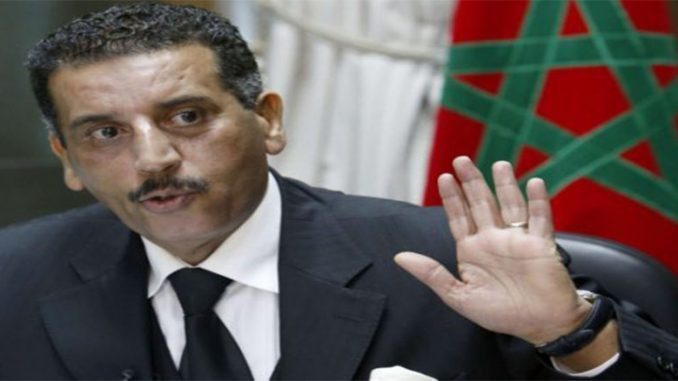
In an interview with the Spanish news website “El Español”, Abdelhak Khiame, the Director of the Central Bureau of Judicial Investigations (BCIJ), has warned about the danger posed by jihadists returning from zones of conflicts.
Dubbed the “Terrorist Hunter” by some European media, Khiame has built an international reputation for himself as a cunning investigator, intensifying the cooperation between the Moroccan secret services and their European counterparts.
In an interview with the Spanish daily, the head of the BCIJ pointed out that the Moroccan secret services said he has repeatedly warned Belgian authorities about the presence of jihadists in their country. In 2008 when Morocco successfully managed to dismantle the Bellirej cell, the Moroccans authorities had warned their Belgian counterparts of the existence of a neighborhood in Brussels “which [could] constitute a real breeding ground for terrorists.”
Stressing the key role played by Morocco in the supervision and organization of religious affairs in its neighboring countries, Khiame pointed out that Morocco’s warnings sometimes fall on deaf ears.
This was the case with both the Belgian and Spanish authorities, he continued. In the Bellirej case, Belgium had refused to cooperate with the Moroccan secret services, denying their request to extract and question Bellirej and Ali Aarrass, who lived in the country at the time.
The BCIJ head also discussed cooperation between Morocco and Spain, warning the Spanish authorities against “laxity and permissiveness” vis-à-vis those returning from the ISIS camps.
According to Khiame, Spain had also ignored the warnings of the Moroccan authorities, but when the attacks in Brussels took place, they realized that “the danger is real and that international cooperation is vital.” He added that “fortunately, I believe that the Belgians have learned the lesson and that the level of our collaboration with them is currently on the same line as with Spain.”
Khiyame said that the Belgians have realized the effectiveness of the Moroccan model especially at the legislative level. “The Moroccan legislator, and I am tired of repeating it, has been very intelligent because he has put in place a reform of the Penal Code stipulating that people who return from conflict zones can be arrested and be punished with penalties up to 20 years in prison,” he said.
He also added that “this vision was not accepted at the beginning with regard to the principle of freedom of movement. But what happened was that the returning jihadists were the perpetrators of the attacks and put under police surveillance. There should be no criticism of the security forces because there was no legislation that allowed them to act or at least question them about the circumstances of their journey abroad. But now they have that legal basis to do it.”
As to whether there is a risk of an attack in Spain similar to that of Madrid on March 11, 2004, Khiame assured that if Morocco had such information, its would share on the spot with the authorities of the country concerned, whether or not there is formal cooperation. “These are human lives and it is a consideration that is superior to any other,” he concluded.



